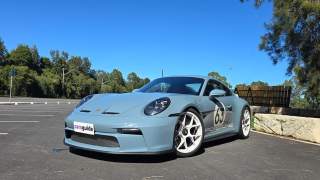
Why price matters for small cars | comment
- Holden Spark
- Nissan Micra
- Volkswagen Up
- Nissan Micra 2013
- Nissan Micra 2007
- Volkswagen Up! 2012
- Nissan Micra 2008
- Nissan Micra 2009
- Nissan Micra 2010
- Nissan Micra 2012
- Volkswagen Up! 2013
- Nissan Micra 2011
- Volkswagen Up! 2014
- Nissan Micra 2014
- Nissan Micra 2015
- Nissan Micra 2016
- Holden Spark 2016
- Nissan Micra 1995
- Nissan Micra 1996
- Nissan Micra 1997
- Holden News
- Nissan News
- Volkswagen News
- Holden Hatchback Range
- Nissan Hatchback Range
- Volkswagen Hatchback Range
- Hatchback
- Holden
- Nissan
- Volkswagen
- Small Cars

Sometimes the best cars don't win comparison tests. That was the case this week.
The Holden Spark sets a new benchmark for how city cars drive. But it also set a new (high) benchmark for price among its peers.
The Spark was dearest in the test — $2700 more than the most affordable option — in a segment sensitive to price.
We weighed cost heavily in our assessment because every dollar makes a big difference when the RRPs are so small.
In a test of exotic performance cars, acceleration and cornering count more than a modest price gap.
For utes, towing, payload and comfort rank highly in our assessment. Which is why Holden execs may be scratching their heads over our outcome.
They know it's a good car. They've got the development bill to prove it.
The cheapest cars on the market are the hardest to make. They cost almost as much to design and develop as the next size up — but the profits are much slimmer.
The Australian new-car market is the most competitive in the world
Perhaps Holden is testing the market to see if buyers will pay big bucks for its smallest car.
We tested its cheapest auto option ($16,690 drive-away). A top of the range Spark ($22,189 drive-away) is dearer than a Hyundai i30 ($19,990 drive-away), which is two class sizes bigger, is better equipped and comes with a longer warranty.
Holden repeatedly tells us the Australian new-car market is the most competitive in the world — so it's the wrong place to experiment with price.
Nissan is dropping the Micra from the local line-up because it can't compete on price. VW dropped the Up city car last year for the same reason.
Had the Spark been $14,990 drive-away with auto — and with a couple of bare necessities it lacks that the others have — it would have won.










Comments